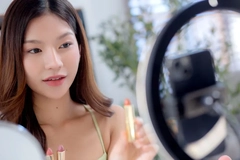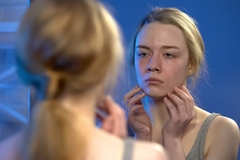UK advertising authority deems WaterWipes “purest” claims misleading, company to appeal

04 Jul 2022 --- The UK’s Advertising Standards Authority (ASA) has concluded a WaterWipes social media ad which claimed to offer the “world’s purest wipes” is misleading. Kimberly-Clark reportedly challenged whether the claim could be substantiated and the ASA questioned the verifiability of the allegation.
“WaterWipes disagrees with the findings of the ASA and intends to appeal its decision. In the meantime, while the decision is pending appeal, the advertisement in question has been removed from publication. While the appeal is in progress, we will not be commenting further,” a spokesperson at WaterWipes, tells PersonalCareInsights.
However, an ASA spokesperson tells us the issue with the WaterWipes ad was not the use of the word “pure” but the use of the word “purest.”

“The ASA concluded that consumers would understand the claim that the product was “purest’’ to be a comparison with other brands. When making a comparative claim in an ad, the ASA rules require that the advertiser must hold evidence to support that claim.”
“We considered that there was not sufficient evidence to support WaterWipe’s claim. Because we considered the evidence inadequate to substantiate the claim ‘world’s purest wipes,’ we concluded that the ad was misleading,” continues the ASA spokesperson.
The advertisement also claimed to use only two ingredients. However, the number of ingredients used does not mean that a product is inherently safer, a spokesperson at Cosmetic Toiletry & Perfumery Association (CTPA), tells PersonalCareInsights.
ASA concluded that the advert should be banned in its current form, and future advertisement claims must hold adequate evidence to substantiate future comparative claims and ensure claims with identifiable competitors are verifiable. ASA spokesperson tells us the issue with the WaterWipes ad was not the use of the word pure but the use of the word purest.
ASA spokesperson tells us the issue with the WaterWipes ad was not the use of the word pure but the use of the word purest.
Muddling purity claims
A Facebook post for the wet wipe advertisement stated, “WaterWipes are purer than cotton and water, containing only two ingredients, 99.9% purified water and a drop of fruit extract. Making them the world’s purest wipes.” The advertisement targeted sensitive skin and newborn or premature skin.
In defense, WaterWipes UC provided proof of obtaining a registered EU trademark of the claim “world’s purest baby wipe.”
The company says the word “pure” is used to describe something “extremely or very pure” or that it was highly pure compared to other items within the same category – referring to the 99.9% water and 0.1% grapefruit seed extract as the main ingredients.
The ASA concluded that there was no adequate evidence to substantiate its purity claims, and therefore the advertisement was misleading.
“All cosmetic products placed on the UK market must comply with the cosmetics laws which are in place to ensure human safety and protect consumers from misleading claims concerning efficacy and other characteristics of cosmetic products,” stresses the CTPA spokesperson.
“CTPA represents all companies involved in making, supplying and selling cosmetics and personal care products.”
Comparisons and competitors
Moreover, the company provided a third-party review of its global competitors, which showed the number of ingredients contained in the product and the proportion of water in it.
The ASA code states that “comparison claims must objectively compare one or more material, relevant, verifiable and representative features.” This was not found in the alleged advertisement claims.
“The inclusion of a comparative-type claim means that a company should not only hold robust claim substantiation for the individual claim as required by the legislation in place, in this case, the UK Cosmetics Regulation but must also meet the additional threshold of holding substantive evidence with regards to the performance or characteristics of other products alluded to in the comparison,” asserts the CTPA spokesperson. WaterWipes says it disagrees with the findings of the ASA and intends to appeal its decision.
WaterWipes says it disagrees with the findings of the ASA and intends to appeal its decision.
“These claims have specific considerations under the CAP Code, as overseen by the ASA, and might be further regulated under the Competition and Markets Authority.”
Additionally, the advertisement did not include information for consumers or competitors to check the comparative claim, nor was there a signpost to suggest a basis of comparison, says the ASA.
For these reasons, the ASA concluded that the advertisement breached the CAP Code rules – misleading advertising, substantiation and comparisons with identifiable competitors.
“World’s best” marketing claims
Companies often make marketing claims for their products to be the “world’s best,” and such claims are still subject to advertising rules, clarifies the ASA spokesperson.
“Claims such as ‘world’s best’ can be understood as subjective or objective claims depending on the context of the advert. If consumers are likely to understand a claim that a product is ‘the world’s best’ as an objective claim, then the advertiser must hold evidence to substantiate the claim and must also adhere to the rules on making comparative claims because, by its nature, the claim draws a comparison with competitors.”
“In cases where the average consumer is likely to (i) understand the claim as an obvious exaggeration, (ii) that it is a subjective claim or (iii) where they’re unlikely to take the claim literally, then such claims are allowed provided, they do not materially mislead consumers,” continues the spokesperson.
However, the spokesperson highlights that marketing communications must not imply that expressions of opinion are objective claims as they can be misleading, especially without adequate evidence.
“Adverts must not materially mislead consumers or be likely to do so. Before distributing or submitting a marketing communication for publication, marketers must hold documentary evidence to prove claims that consumers are likely to regard as objective and capable of objective substantiation,” advises the spokesperson.
By Venya Patel













